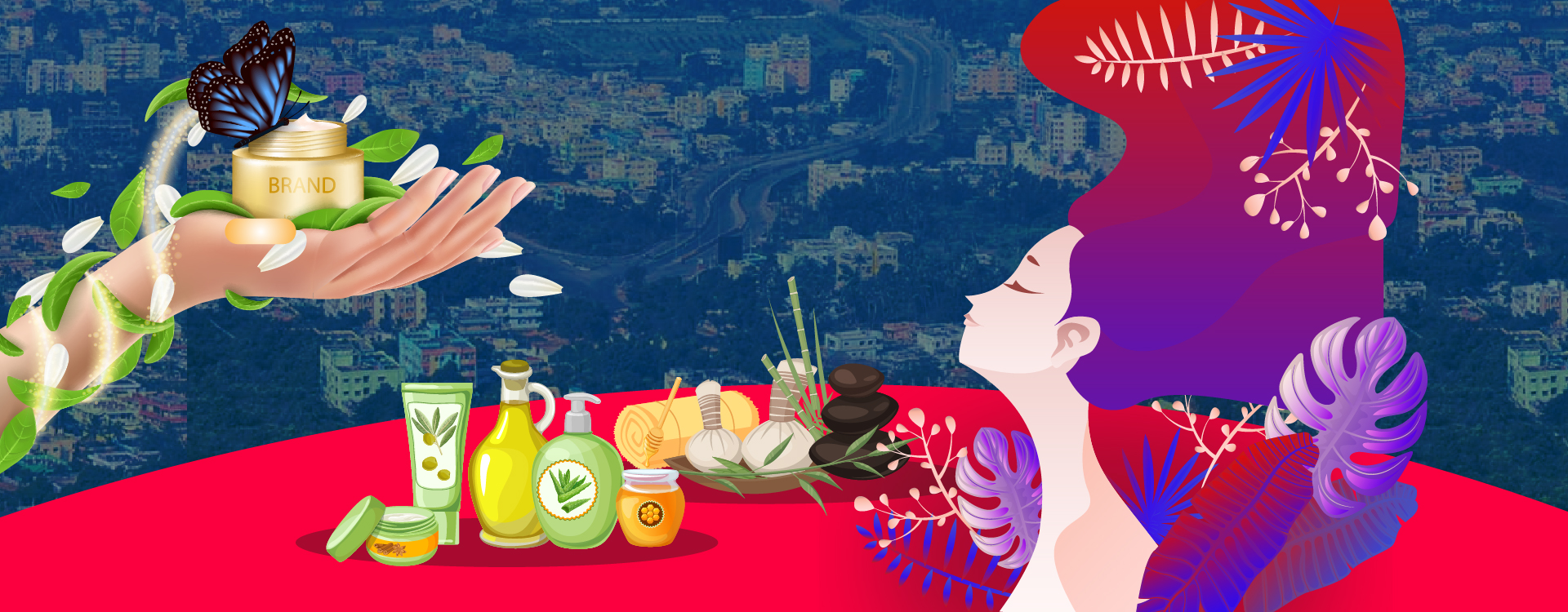In recent years, consumer perception and acceptance towards fitness and beauty products have increased overwhelmingly and changed the face of the beauty, health and wellness industry. The industry and its products and services have moved beyond the constraints of ultra modular city life. With an increase in the workforce’s disposable income, rapid urbanisation and a desire for a better lifestyle, a higher demand for wellness and beauty services has been witnessed from the middle class in the second and third-tier cities.
With the advent of innovative technologies and new services in the field, the first signs of digital bottlenecks have appeared in the health, beauty and wellness segment. Traditional players are playing critical roles through new technologies extending their valuable services, such as artificial intelligence (AI), machine learning, and data analysis. These are increasing businesses’ products and services, customer loyalty and expansion plans across India.
‘‘
With more people from Tier-2 and Tier-3 towns using the internet, the prevailing online wellness industry is close to an entire digital makeover.
Impact of COVID-19 on the Development of Beauty, Health and Fitness Industry in Tier 2 And 3 Cities
Any crisis, particularly a public crisis, expects leaders to perform with knowledge, compassion and decisiveness. In the ongoing pandemic, the health and wellness sector has played an essential role in ensuring that reliable safety and health information is available to the public in real-time. The collaboration between the public and private health sectors to raise public awareness and enable informed participation for consumers has also opened new avenues for businesses to utilise them for future tech-based growth.
Leveraging Technology to Draw the Industry Closer to the Market
With the onset of a new decade in 2021, the beauty, health and wellness industry is seeing a generation of intelligent and digitally savvy consumers for whom they can provide technology-based health solutions. The use of technology is not foreign to health products and services. The industry already uses technology to develop product strategies, integrate online and offline channels, obtain more customer information and personalise healthy food and services.
Companies are using digital ways like AI integration, e-commerce adoption and other formats to develop sustainable models using innovative equipment and resources. Many established and start-ups in the industry are acquiring and producing high-quality products to power their supply chains. This includes using innovation to evaluate the consumer’s lifestyle, practices, and how food safety features improve life quality.
India’s Tier 2 and 3 Cities are Contributing Significantly to Healthcare and Wellness Industry
Various economic and financial factors such as high income, online shopping style and easy access to smartphones have improved access to preventive medical, beauty and wellness facilities in Tier 2 and Tier 3 Indian cities. With more people from Tier-2 and Tier-3 towns reaching the internet, the prevailing online wellness industry is close to an entire digital makeover. The digital system working together with new and established businesses in real-time is expected to bring new and unique products for consumers in the smaller cities. A growing awareness of the benefits of good health habits is enabling people to avoid unhealthy environments and choose foods rich in nutrients, nutrients and vitamins, effectively boosting the demands that businesses need to cash in on.
Industrial Development in Non-metro Cities
As the market has stabilised in major Indian cities, companies have started targeting Tier 2 and Tier 3 cities for expansion plans. In September 2017, wellness and beauty company Anytime Fitness announced additional projects and funding of approximately $1.4 million for starting its operations in Ludhiana, Dehradun, Jamshedpur and Srinagar.
As people’s income increases over time, they spend more money on wellness, beauty, and grooming. Start-ups and small businesses can take advantage of this spike in demand by offering exclusive services in tier 2 and 3 cities. This significant boost has been witnessed in the hair salon segment in recent years.
Lakmé already has 25% of its salons in tier-3 cities, and it plans to launch two outlets each week to have a pan-India presence. Some of its upcoming salons are designed in Imphal (Manipur), Trivandrum (Kerala), Kadavanthra (Kerala) and Raichur (Karnataka). In October 2018, it opened its 400th salon in Gariahat, Kolkata. Jawed Habib Hair & Beauty Limited aims to expand to the taluka (sub-district) level by converting existing salons in villages and operating at their original names added next to the brand name. VLCC has over 220 wellness and beauty centres, out of which nearly 40% are in tier-2 and tier-3 cities.
Bridging the Gap of Skilled Professionals
Discovering and retaining talent is the most significant difficulty facing beauty and wellness businesses today. There is a shortage of high-quality educational schools with accredited training processes. Vocational training courses usually provide theoretical knowledge and limited experience. There are no government voluntary organisations or training centres to improve the Beauty, Health and Wellness skills. As a result, the only means for the companies to develop the right skills for their employees is through in-house training.
Although, the training and upskilling processes have started to change in recent years. The government has inaugurated several measures to improve technical skills and competencies for the sector. Big players like VLCC and Jawed Habib are also investing significant sums in improving their training and practice to build a strong presence in tier 2 and 3 cities, thereby expanding the market to the remotest parts of Indian states.




